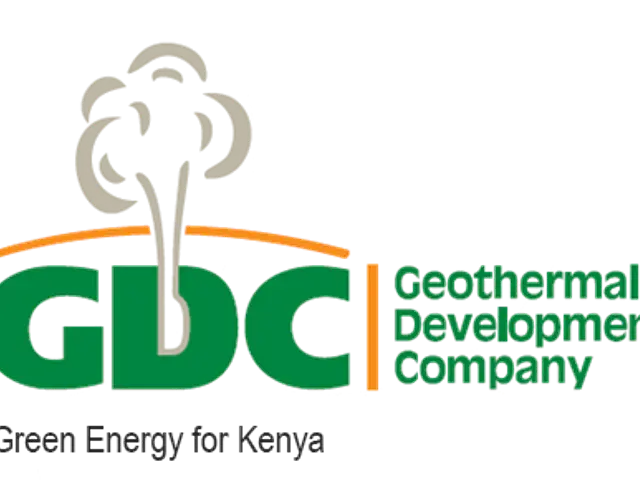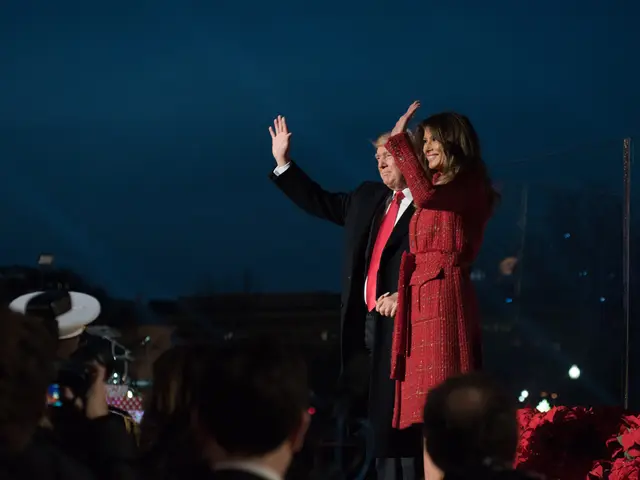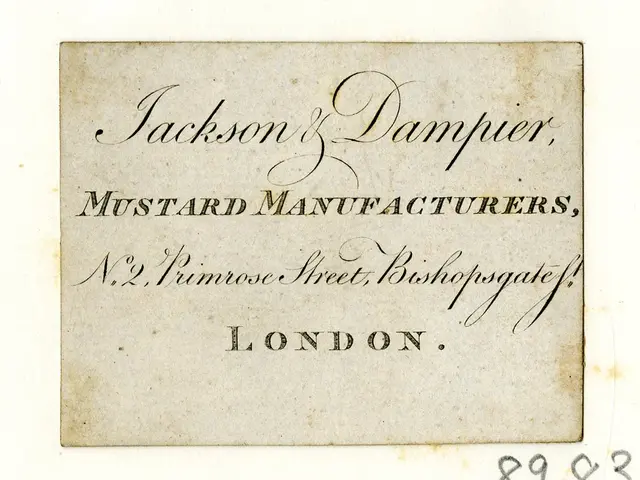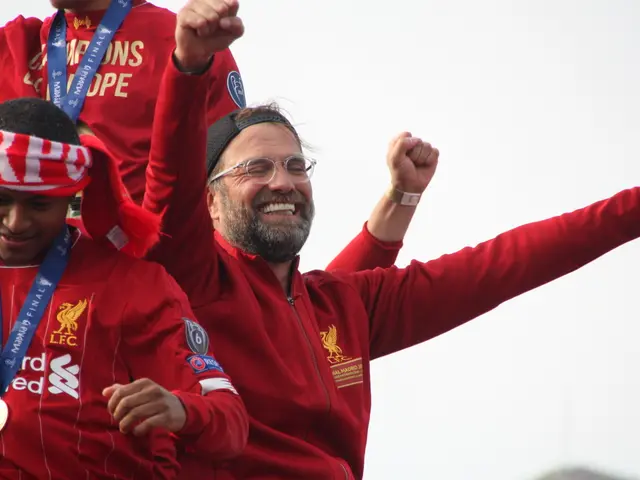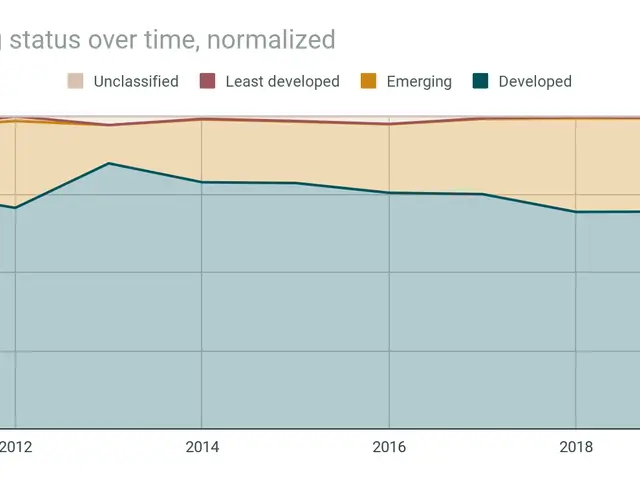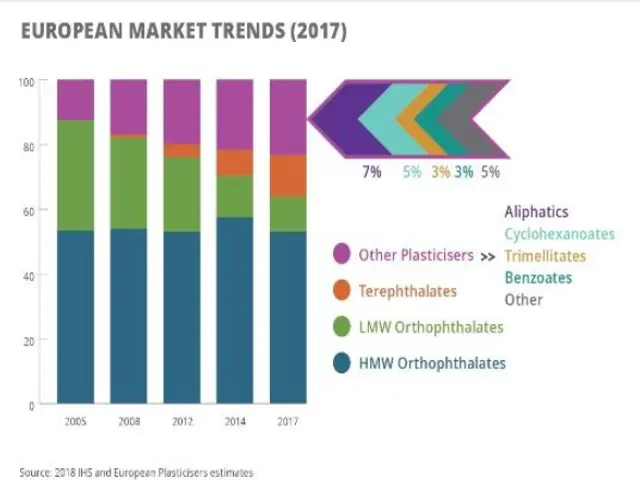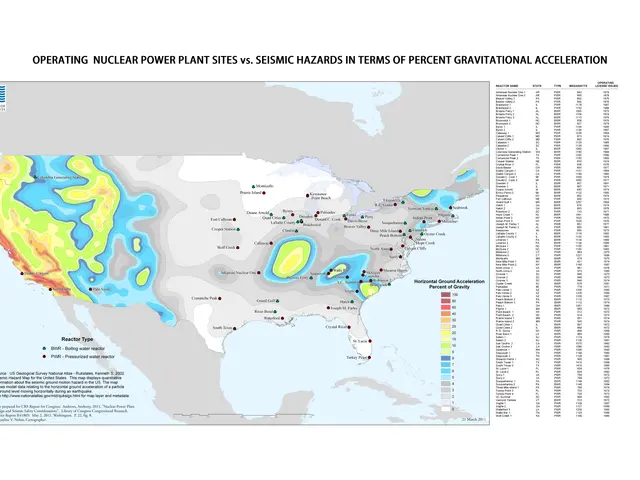Discussion Surrounding Internet Gaming by Indigenous Groups Continues to Be Significant in North Dakota
Relentless Pursuit: North Dakota's Tribes Seek Online Gambling Dominance Amid Charity Concerns
A storm brews in North Dakota's political landscape as the state's tribal communities edge closer to their online gambling aspirations. However, a thorny issue might impede their progress, causing ripples for local charitable organizations. These organizations, who've previously crossed paths with Governor Doug Burgum, fear that granting the state's five American Indian tribes exclusive rights over online gambling could jeopardize their own gaming ventures.
A Contentious Compact Renewal
The tribes ardently desire Governor Burgum's approval for the revised tribal-state agreements, commonly termed compacts. Approval of these compacts is essential, as they serve as the foundation for tribes across the United States to offer gambling products. As the current compacts are scheduled to expire towards the year's end, it falls upon Gov. Burgum to endorse them.
Nevertheless, the tribes aren't eager to engage in a cutthroat competition with charities, particularly advocating against "Las Vegas-style" pull tab machines, which raked in a staggering $1.75 billion from players in 2022 alone. The tribes underscore their status as major contributors to social programs on their reservations and top employers.
Both parties express a shared interest in continuing their respective operations, attracting both the tribes' and charities' representatives to address 100 onlookers at the State Capitol. A tribal operators' employee cited job losses due to e-tabs transitioning online.
However, not everyone shares the tribes' optimism. North Dakota Gaming Alliance executive director Mike Motschenbacher believes that if the tribes' casinos expand online, they will annihilate what charities manage to achieve.
Charities' Revenue Surges on the Back of E-Tabs
While details emerge on the amount of revenue generated by charities in North Dakota ($75 million, a substantial increase due to the e-tabs' success), uncertainties persist over what the impact of tribal casinos' domination of online gambling might be.
It's clear that the current status quo harms the tribes, prompting them to leverage their gaming expertise to secure benefits for their community. Charities, on the other hand, remain steadfast in opposition. No definitive decision has been reached.
The Triumph vs. Struggle: Possible Outcomes
If American Indian tribes are granted exclusivity over online gambling in North Dakota:
- Financial Repercussions:
- Loss of Revenue: Charitable organizations could face a decline in revenue from online gambling, hindering their ability to fund local initiatives and programs.
- Diversifying Funding: Charities might need to explore other fundraising methods, such as events, donations, or corporate partnerships.
- Regulatory Woes:
- Access to Gambling: Limited access to online gambling could force charities to focus on other gaming options, subject to various regulations.
- Compliance Costs: Charities might face increased compliance costs, ensuring they don't violate tribal exclusivity.
- Community Alliances:
- Collaboration Opportunities: There may be opportunities for charities and tribes to collaborate, utilizing tribal gaming revenue to support community projects.
- Tensions: Exclusivity could fuel tensions if charities feel excluded from potential revenue sources, particularly if they depended on online gambling for fundraising.
- Public Perception:
- Transparency and Accountability: Maintaining transparency and accountability in the management of gaming revenues is paramount to safeguard public perception of both tribes and charities.
- Support for Community Initiatives: Public support could shift favorably toward tribes if their exclusivity results in enhanced support for the Native American community. Alternatively, empathy might rise for charities if they face difficulty under the new arrangements.
In conclusion, granting exclusivity to American Indian tribes over online gambling in North Dakota might instigate significant changes in charitable organizations' operations and fundraising capabilities, potentially impacting their ability to sustain community projects and initiatives.
- With tribal communities pursuing online gambling dominance in North Dakota, Governor Doug Burgum is faced with a decision that may affect the renewal of the current tribal-state agreements, known as compacts, which serve as the foundation for online gambling across the United States.
- The tribes are eager to distance themselves from "Las Vegas-style" pull tab machines, focusing on their role as substantial contributors to social programs on their reservations and top employers, while managing a delicate relationship with Governor Burgum, who might be concerned about the potential impacts on local charity organizations.
- In a recent assembly at the State Capitol, both tribes and charities debated the ramifications of transitioning from e-tabs to online gambling, with tribal operators expressing job losses and the North Dakota Gaming Alliance executive director, Mike Motschenbacher, warning that an exclusive tribal online gambling monopoly could obliterate what charities manage to achieve.
- If North Dakota’s tribes attain exclusivity over online gambling, possible outcomes could include financial repercussions, such as a decline in charity revenue, increased regulatory challenges, tensions between the parties, alterations in public perception, and opportunities for collaboration.
- In a dynamic general-news landscape filled with sports coverage and industry trends, the evolving saga of the gambling industry and North Dakota's tribes serves as a captivating subplot, following the strategy of tribes looking to claim their piece of the online gambling pie amid the concerns of charity organizations and the politics surrounding their endeavors.

